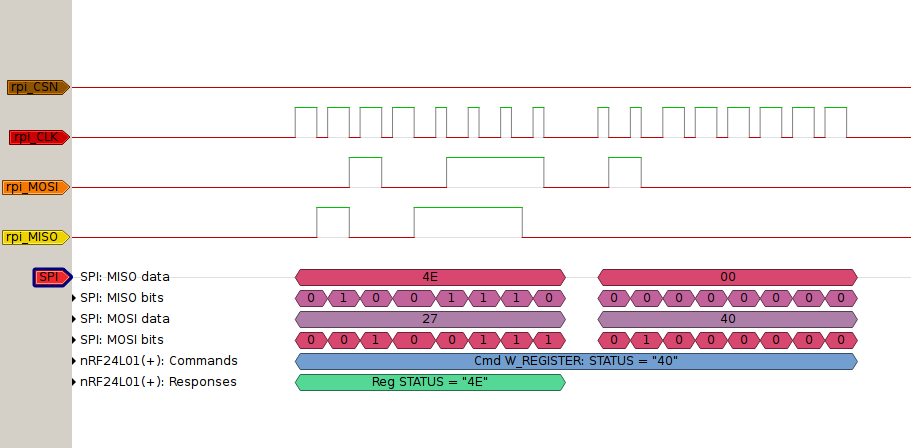 We're happy to announce that libsigrokdecode 0.3.1 has been released.
We're happy to announce that libsigrokdecode 0.3.1 has been released.
You can download the libsigrokdecode-0.3.1.tar.gz source tarball from sigrok.org/download as usual.
This is mostly a bugfix-release, the C library API was not changed. This means existing frontends that work with / are linked against libsigrokdecode 0.3.0 will continue to work just fine, without requiring relinking or recompiling.
However, some of the protocol decoders' output changed in ways which are not compatible with the state of the decoders in the last libsigrokdecode release. This means, if you're using any scripts to parse decoder output, or if you have any "private" protocol decoders that stack on top of one of those shipped with libsigrokdecode, you will have to do some adaptations. You're also encouraged to submit such decoders to be included in libsigrokdecode proper, of course!
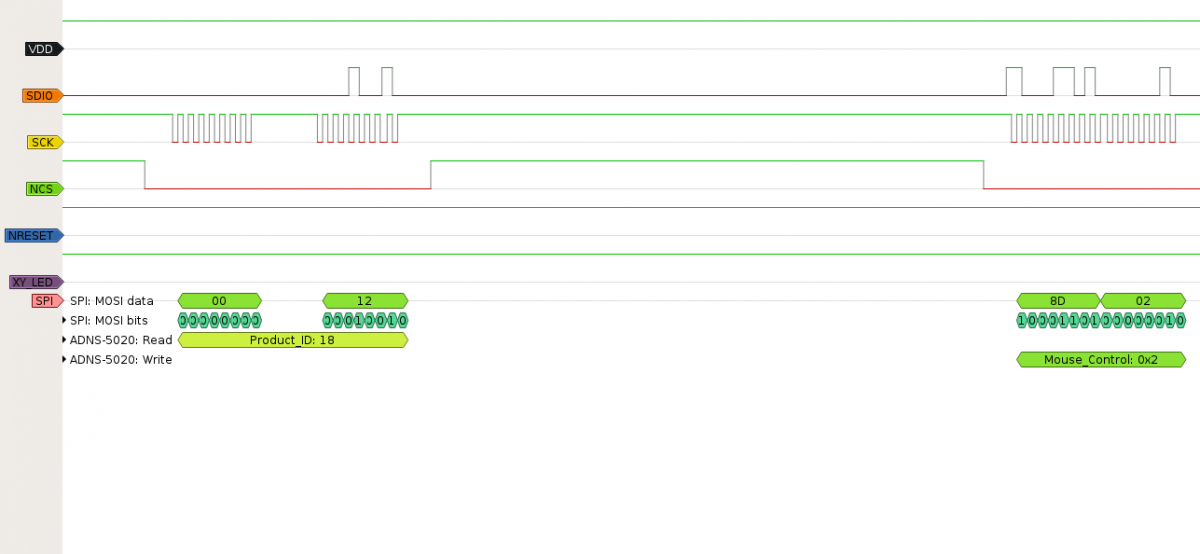 In addition to all kinds of improvements and bugfixes in existing protocol decoders (PDs), you're probably most interested in what new protocol decoders are now supported (backported from git HEAD). So here's the list:
In addition to all kinds of improvements and bugfixes in existing protocol decoders (PDs), you're probably most interested in what new protocol decoders are now supported (backported from git HEAD). So here's the list:
-
adns5020: Bidirectional command and data over an SPI-like protocol
-
am230x: Aosong AM230x/DHTxx/RHTxx humidity & temperature sensor
-
arm_etmv3: Decode ETM instruction trace packets
-
arm_itm: Trace data from Cortex-M / ARMv7m ITM module
-
arm_tpiu: Filter TPIU formatted trace data into separate streams
-
eeprom24xx: 24xx series I²C EEPROM protocol
-
jitter: Retrieves the timing jitter between two digital signals
-
mdio: Half-duplex sync serial bus for MII management between MAC and PHY
-
mrf24j40: IEEE 802.15.4 2.4 GHz RF tranceiver chip
-
nrf24l01: 2.4GHz transceiver chip
-
pwm: Analog level encoded in duty cycle percentage
-
rfm12: HopeRF RFM12 wireless transceiver control protocol
-
spdif: Serial bus for connecting digital audio devices
-
stepper_motor: Absolute position and movement speed from step/dir
-
swd: Two-wire protocol for debug access to ARM CPUs
-
tca6408a: Texas Instruments TCA6408A 8-bit I²C I/O expander
-
timing: Calculate time between edges
This adds up to currently 54 supported PDs in total.
Please check the libsigrokdecode NEWS file for the full list of user-visible changes in this release. As always, we're happy about bug reports, feature suggestions, comments about which protocol decoders you'd want supported next, or even better — patches :)
Happy decoding!
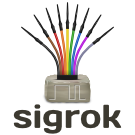
 We're happy to announce that the
We're happy to announce that the  We're happy to announce that
We're happy to announce that  We're happy to announce that
We're happy to announce that 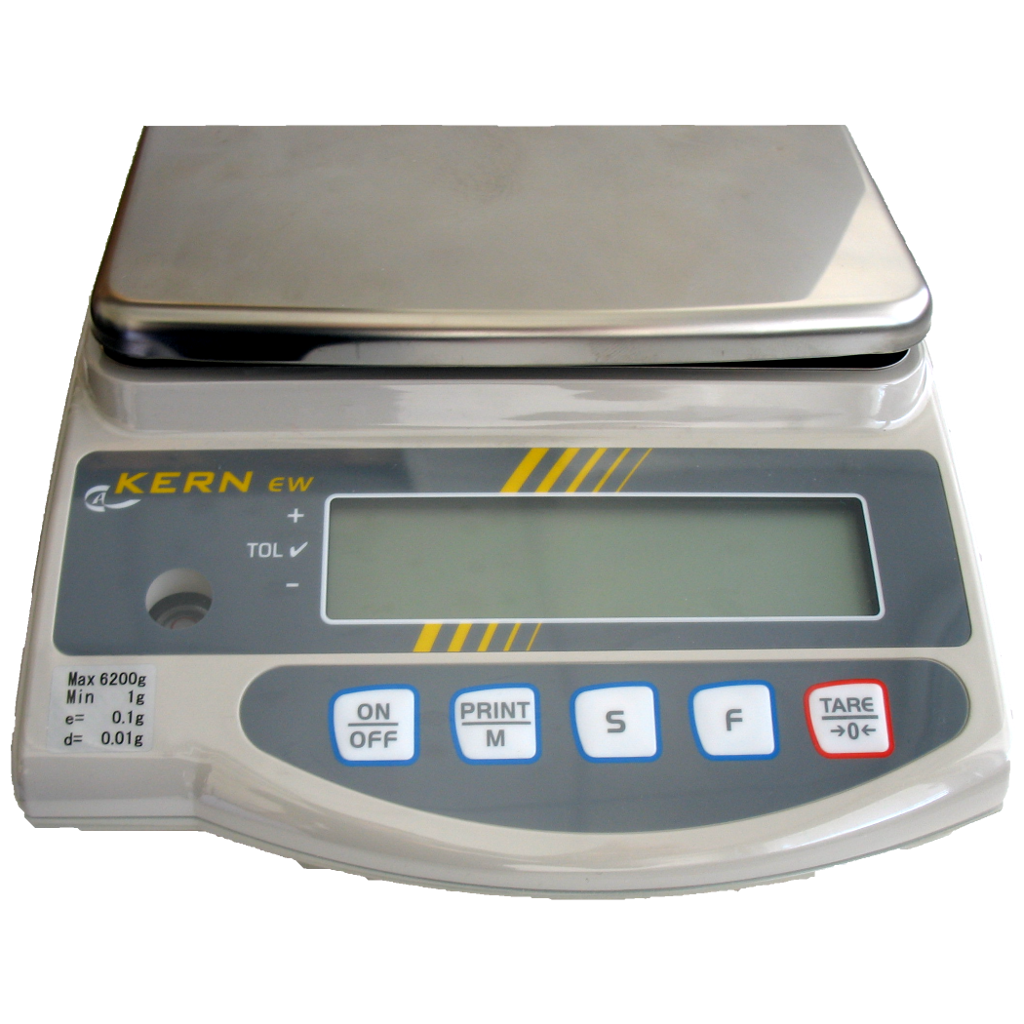
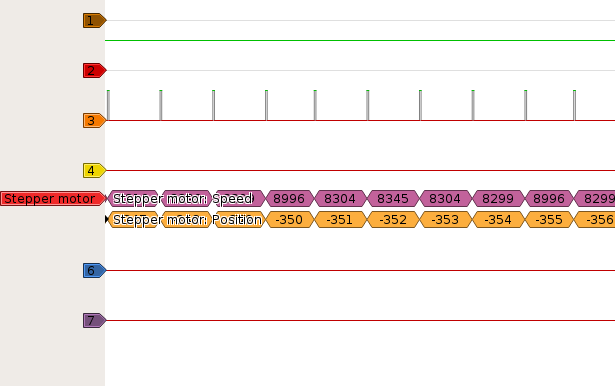
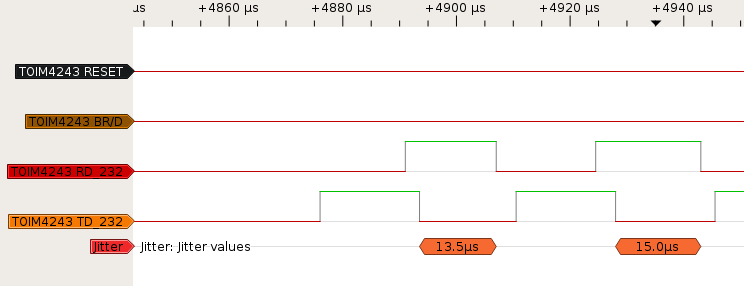
 We're happy to announce that
We're happy to announce that  In addition to all kinds of improvements and bugfixes in existing
In addition to all kinds of improvements and bugfixes in existing 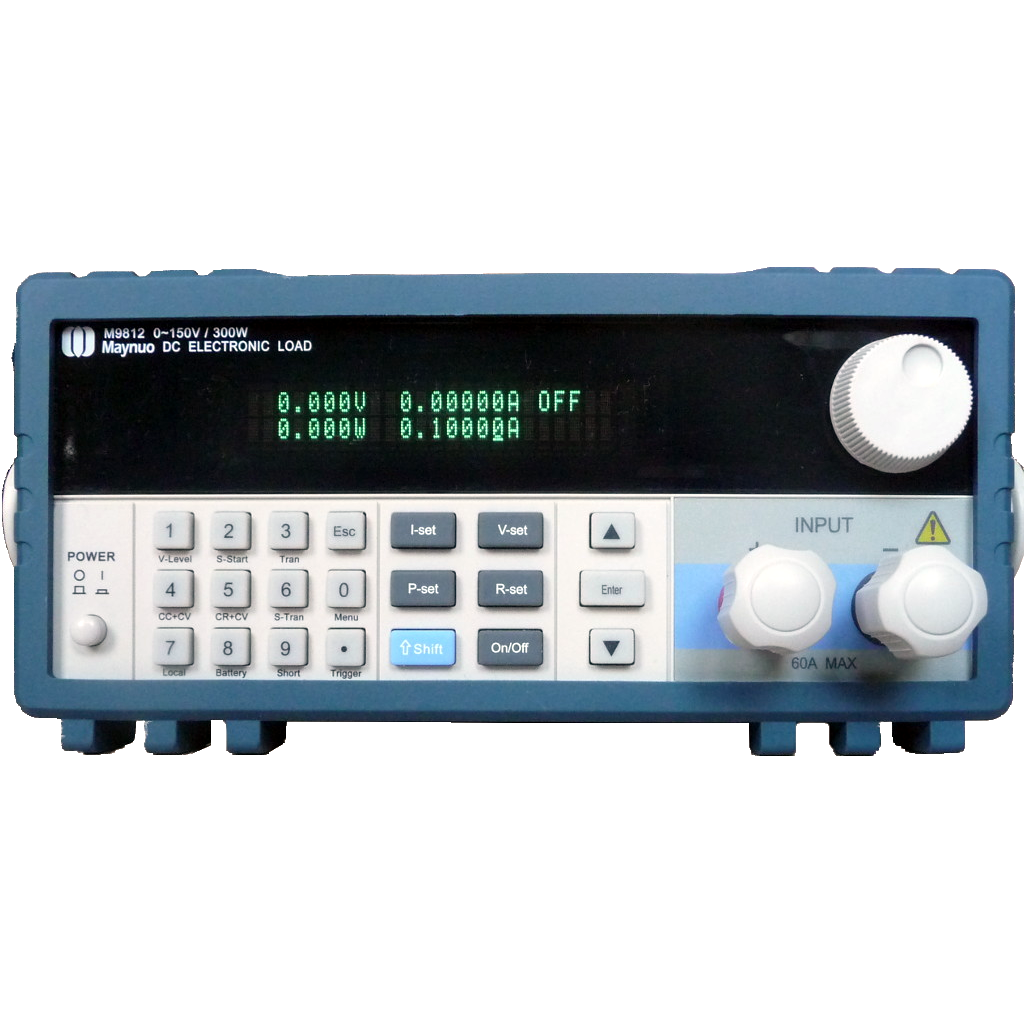 We're happy to announce that
We're happy to announce that 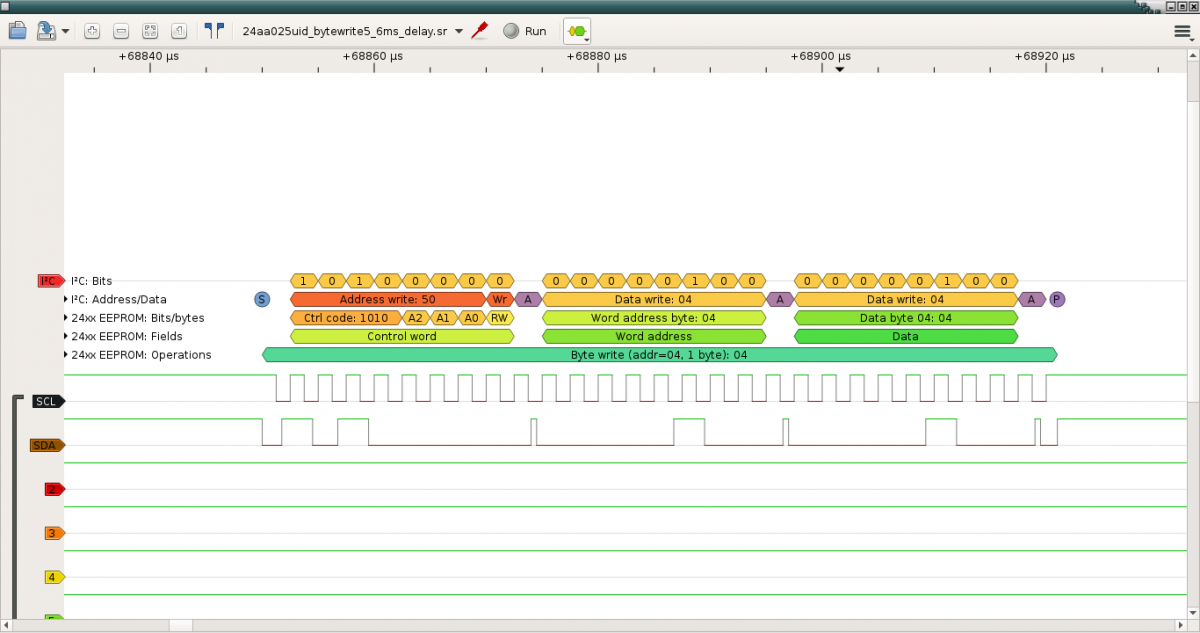 It's been a while since the
It's been a while since the